Eczema Specialist Advice
Home » Conditions » Eczema Specialist Advice
Award winning dermatology service, with over 20 years on experience
Short waiting lists, on some occasions offering same week appointments
Safe environment, in Care Quality Commission approved facilities
Eczema Treatments Include:
Everything you need to know
Eczema is a long-term condition which causes the skin to become dry, red, itchy, and cracked. It is most common in children and can improve over time, although many adults find that they still have flare-ups of eczema during periods of stress. The most common form of eczema is atopic eczema, which can affect any part of the body but is often found inside the elbows, knees, on the neck, hands, cheeks, and scalp.
Eczema and dermatitis mean the same thing; inflammation of the skin characterised by redness, swelling, itching and excoriation (scratch marks) in the acute form. In the chronic or persistent form, regular rubbing of the skin through itching and scratching, leads to thickening or ‘lichenification’, scaling and post-inflammatory darkening of the skin.
Alternative names: Atopic eczema, dermatitis, skin allergy, contact dermatitis, lichen simplex, nodular prurigo, sensitive skin, seborrhoeic dermatitis, asteototic eczema, constitutional eczema, allergic eczema, irritant dermatitis, venous eczema, stasis dermatitis, dishydrotic eczema, popholyx eczema.
WHAT CAUSES ECZEMA?
The cause of atopic eczema is unknown, but it often runs alongside other conditions including asthma and hay fever, and flare-ups are triggered by things such as soap, laundry detergent, stress, the weather, and occasionally food allergies. There are many different causes for the different types of eczema.
WHAT ARE THE SYMPTOMS/TYPES OF ECZEMA?
- Atopic eczema; common in children and related to other allergic conditions such as asthmas and hay fever.
- Allergic contact dermatitis: an eczema caused by an allergic reaction to something coming in to contact with the skin (such as fragrance or hair dye). This can be identified by means of a patch test.
- Irritant contact eczema: an eczema caused by a chemical irritating the skin (such as soap or disinfectants)
- Lichen simplex chronicus: a thickened itchy area caused by repeated rubbing and scratching
- Nodular prurigo: similar to lichen simplex, multiple small itchy areas of thickened inflamed skin
- Asteototic eczema: dermatitis due to dry, cracked skin that occurs with age
- Drug-induced eczema: eczema that might resemble any of the above types, but that is caused by medications.
- Pompholyx/Dishydrotic eczema: itchy tiny blisters (or vesicles) occurring under the skin on hands and
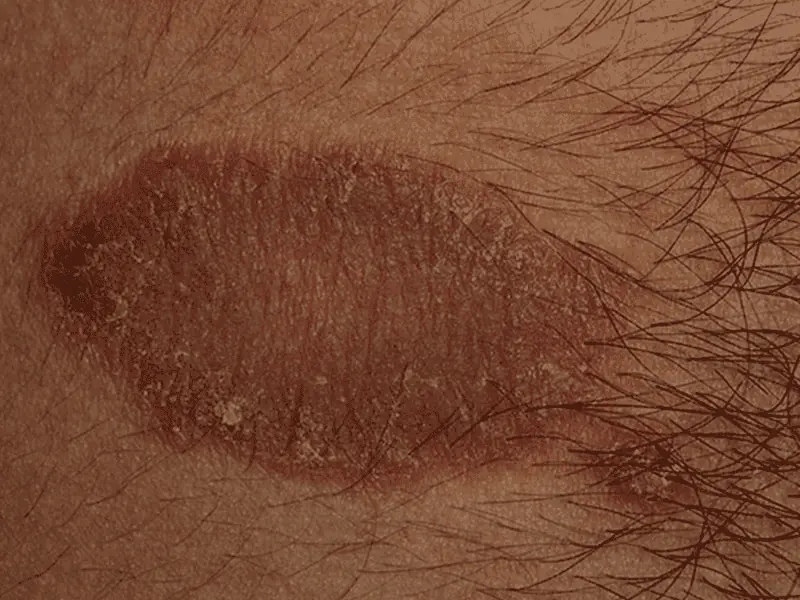
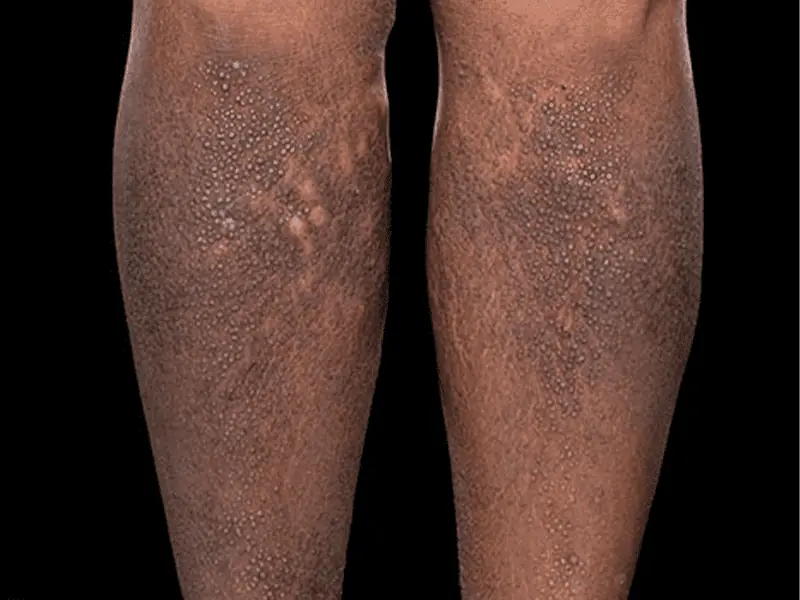
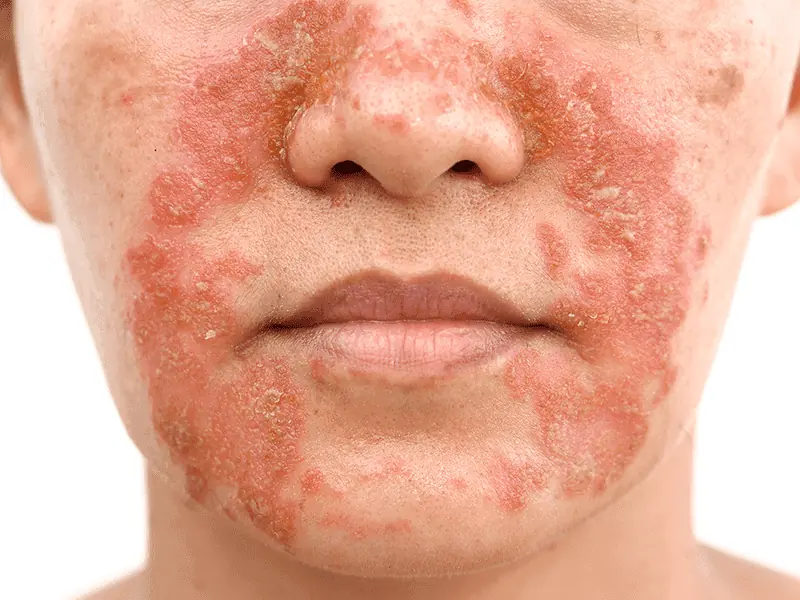
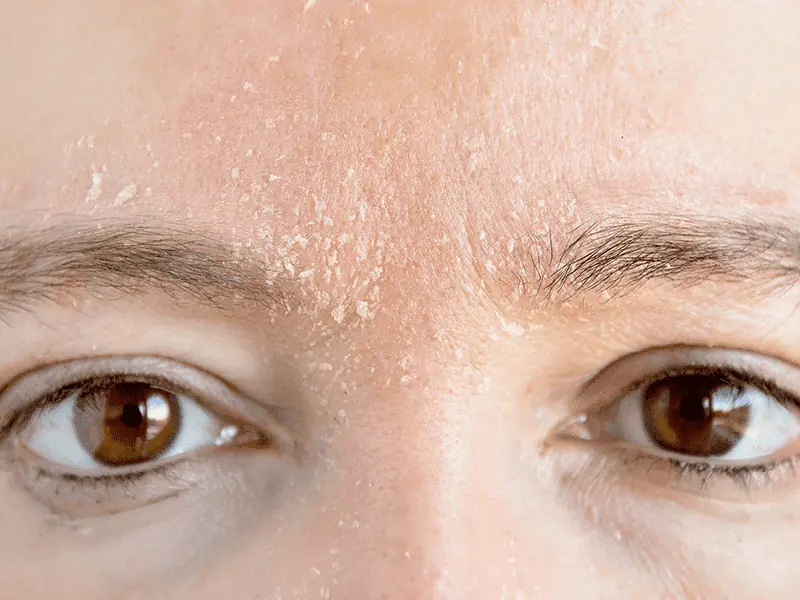
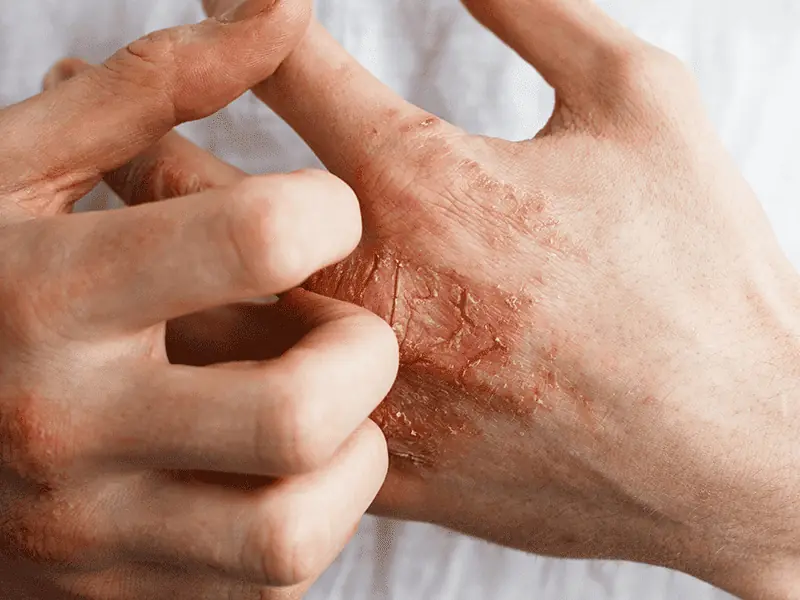
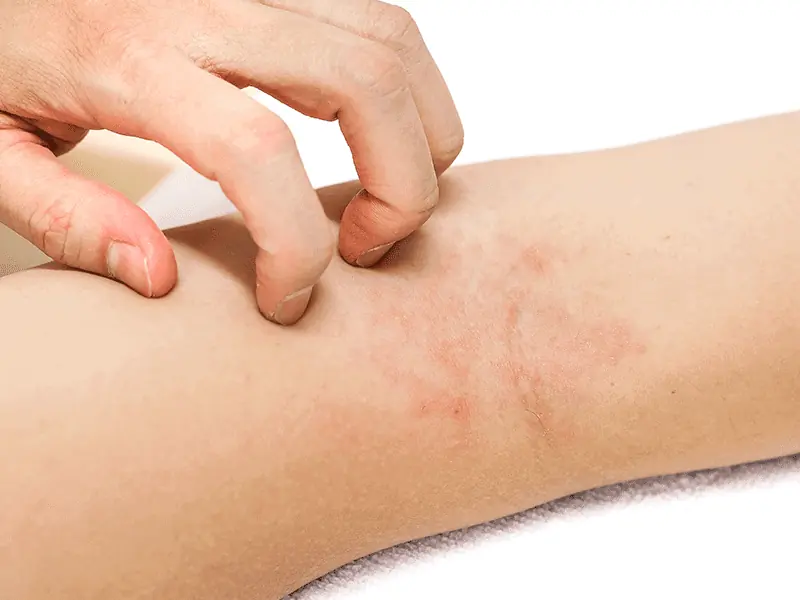
HOW CAN ECZEMA BE TREATED?
Although eczema isn’t a life-threatening skin rash, it can affect your quality of life as a sufferer. The appearance of the rashes can cause embarrassment for some. Flare-ups of eczema can be very itchy and uncomfortable; scratching the skin provides immediate short-term relief, but ultimately prolongs the problem by introducing bacteria to the broken skin and causing further infection and inflammation.
Stratum Clinics specialises in treating skin conditions and rashes including eczema. We can provide you with a course of eczema treatments to deal with flare-ups and ongoing symptoms, as well as providing advice on how you can manage your eczema and minimise flare-ups in the future.
There have been recent advances in the types of treatment for eczema that are available. Topical ointments and emollients can help to clear up an existing rash, whilst specialist moisturisers can help to prevent the skin from drying out. Oral treatments can also be prescribed to help clear a flare-up and aid in the long-term management of the condition.
FREQUENTLY ASKED QUESTIONS
WHAT DOES ECZEMA LOOK LIKE?
Acute eczema is red with swelling of the skin, sometimes to the point of tiny blisters or vesicles appearing. It is often symmetrically distributed. Chronic eczema that has been rubbed repeatedly might be thickened and darkened.
HOW MIGHT IT AFFECT ME?
The key feature of eczema is that it is itchy. This can be a minor distraction or a major feature that interferes with your life and prevent sleeping, working and concentration. In children it can prevent sleep which causes unhappiness at home. The condition can cause redness and thickening of the skin which might affect one’s appearance and confidence.
CAN ECZEMA BE CURED?
There is currently no known cure for eczema, though many articles in the media suggest otherwise. Treatment is focussed on the symptoms and minimising the triggers.
Eczema Treatment Process:
Book Eczema Assessment
Contact us to arrange a no-obligation consultation with our experienced acne specialist who will examine and discuss your stage of eczema.
Appropriate Treatment Identified
There are a wide range of eczema treatment options available depending on the severity and location of your eczema. Our experienced dermatologist will explain all of your treatment options and help you to decide the best programme for you.
Treatment Begins
Once an appropriate treatment has been agreed upon, the treatment programme begins, and you’ll be well on your way to a healthier, happier skin. Results will likely appear within the timeframe suggested by your eczema specialist.
REQUEST A CALL BACK
Please fill in this form and one of our team will give you a call back to arrange a consultation with one of our expert dermatologists.
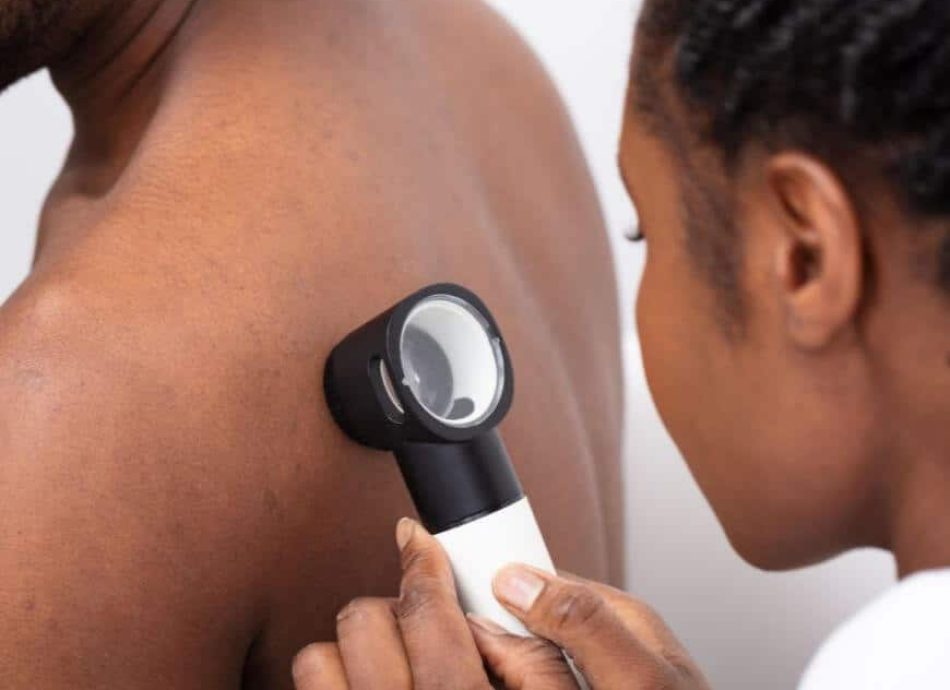
HEAR FROM OUR PATIENTS
WHY Choose STRATUM DERMATOLOGY CLINICS as your eczema specialist?
Although eczema isn’t a life-threatening skin rash, it can affect your quality of life as a sufferer. The appearance of the rashes can cause embarrassment for some. Flare-ups of eczema can be very itchy and uncomfortable; scratching the skin provides immediate short-term relief, but ultimately prolongs the problem by introducing bacteria to the broken skin and causing further infection and inflammation.
Stratum Clinics specialises in treating skin conditions and rashes including eczema. We can provide you with a course of eczema treatments to deal with flare-ups and ongoing symptoms, as well as providing advice on how you can manage your eczema and minimise flare-ups in the future.
There have been recent advances in the types of treatment for eczema that are available. Topical ointments and emollients can help to clear up an existing rash, whilst specialist moisturisers can help to prevent the skin from drying out. Oral treatments can also be prescribed to help clear a flare-up and aid in the long-term management of the condition.
Eczema Treatment in Cheltenham
Stratum Clinics Cheltenham
5 Ormond Terrace
Cheltenham
GL50 1HR
Eczema Treatment in Oxford
Stratum Clinics Oxford
Cantay House
38-39 Park End Street
Oxford OX1 1JD
Eczema Treatment in Wimbledon & Raynes Park
Stratum Clinics Wimbledon & Raynes Park
Raynes Park Health Centre
1 Lambton Road
Wimbledon
SW20 0LW
latest INSIGHTS AND ADVICE

Guide to Fall Skin Conditions
Autumn, with all its stunning colours, also brings some challenges for our skin. As the air gets cooler and the leaves turn vibrant shades, it’s a reminder that we’re steadily approaching winter. Keeping your skin glowing and healthy during this transition from summer to the
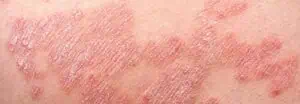
Eczema Awareness Month – Complete Guide on Eczema
October is Eczema Awareness Month. For individuals living with eczema, you will be all too familiar with the trials of handling this skin complaint. It’s our mission throughout October and beyond to educate, support and empower you by delivering invaluable insights on its origin, available

Understanding Varicose Veins: Symptoms, Treatments and Prevention
Varicose Disease Awareness Month focuses on raising awareness about varicose veins, a common but often ignored condition affecting millions globally. This September, we’re highlighting the importance of early detection, available treatments and lifestyle changes to effectively manage varicose veins. By increasing awareness, we aim to